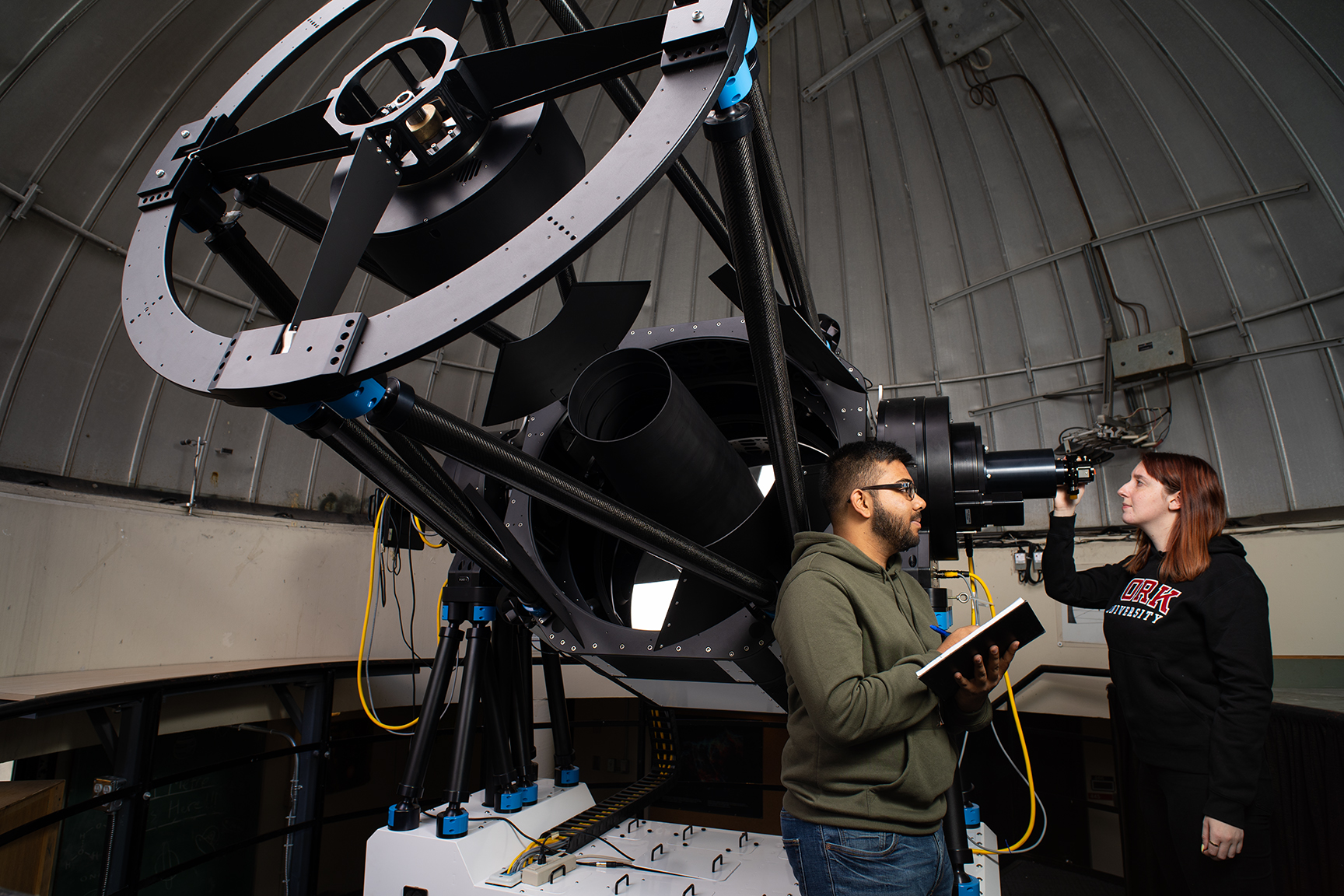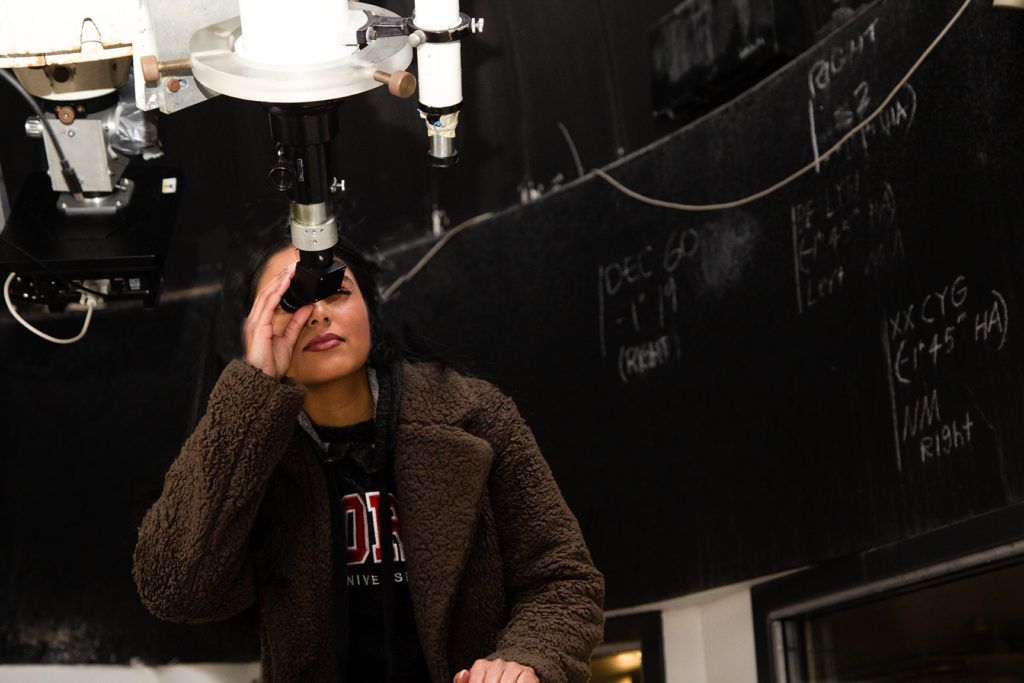
Includes: Applied Physics, Astronomy and Astrophysics, Physics
Physics is the scientific discipline that deals with matter and energy and their interactions on scales from the sub-nuclear to the entire universe. It seeks to provide the deepest possible understanding of how nature works, with the aim of arriving at a complete model of the natural world. Astronomy focuses on understanding the origins, properties, and functions of the universe and its planets, stars, and galaxies, and everything in between. Physics is an important tool in astronomical research, but astronomical research often leads to insights into physics, too, such as the exciting connections between cosmology and elementary particles.
At York, a broad mix of experimental and theoretical physics and astronomy is taught in a research-intensive environment. Students have the option of pursuing studies in three different streams distinguished by course requirements: Physics, Applied Physics, and Astronomy and Astrophysics. Regardless of the stream, students gain a thorough understanding of fundamental concepts in physics, such as classical mechanics, relativity, modern optics, electromagnetism, quantum mechanics and statistical mechanics. In the Physics stream, students have the most flexibility in choosing the direction of studies in third and fourth year. For example, a student interested in theoretical physics might take relevant courses in applied mathematics. In the Applied Physics stream, additional training is specified in more technological areas such as electronics. Students in the Astronomy and Astrophysics stream add courses in subjects ranging from planets to the universe as a whole, all of which include training in astrophysics.
All streams develop practical skills in mathematics and computing by promoting applications to problems in physics or astronomy. Students gain the ability to think critically and to analyze and solve complex problems, talents which are in high demand in both the private and public sectors. A four to sixteen month internship is available between third and fourth year.
Typical First-Year Courses
- Physics
- Astronomy (Astronomy and Astrophysics stream)
- Chemistry
- Calculus
- Linear Algebra
- Computer Programming
- General Education course
Careers
A degree from the Faculty of Science opens the door to many different pathways and opportunities. York Science offers an ideal learning environment to achieve your highest potential. Our programs are known for academic excellence, with professors who are committed to your success.
Our Experiential Education Coordinator provides career support services to students looking to engage in experiential learning, including co-op and internship workshops, resume help, interview prep, and much more.
The Career Center at York offers free support and resources to students such as career development workshops, one-on-one appointments, networking events, and job boards.

Astronomy Major:
- Research or research support at government laboratories, National Research Council Observatories
- Applied Computing
- Mathematical and Computer Modelling
- Digital Imaging (e.g., in remote sensing, oceanography, geophysics, biophysics, medicine)
- Virtual Reality and Data Visualization
- Medical Physics – hospitals, biotechnology industries
- Finance or Consulting (applied statistical analysis)
- Postgraduate Studies/Academic Career
- Education – elementary, high school, college, university
Physics Major:
- Research or research support at government laboratories
- Industrial Physicist – telecommunications (fibre optics), biotech industries, opto-electronics (lasers), aerospace
- Mathematical and Computer Modelling
- Virtual Reality and Data Visualization
- Advanced Engineering fields (e.g., biomedical, aerospace, nanotechnology)
- Medical Physics – hospitals, biotechnology industries
- Finance or Consulting (applied statistical analysis)
- Postgraduate Studies/Academic Career
- Education – elementary, high school, college, university
